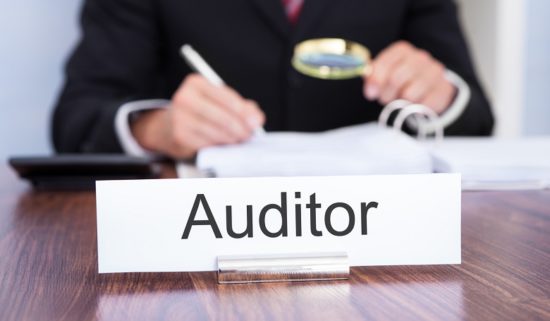New Tax Laws Should Lower Your Odds of Being Audited

For the last five years, the IRS has been examining fewer and fewer returns. In the calendar year 2016, 1.1 million tax returns were audited (0.5 percent of all returns), down from approximately 1.7 million returns in the calendar year 2012.
Now the IRS faces a new regulatory challenge with approximately the same budget as in 2017 – a decrease of almost $1.5 billion (23 percent) from 2010 when inflation is taken into account.
Will Your Odds of Being Audited Really Drop?
It seems reasonable that your odds of being audited will drop even further with the passage of TCJA. However, that may depend on how you are affected by the new law.
The TCJA was designed to simplify taxes by encouraging fewer taxpayers to itemize.
With the standard deduction almost doubled, fewer Americans are likely to itemize – and excessive or unusual itemized deductions are one of the most common methods of cheating on taxes.
Fewer Red Flags
Simply put, your tax return is less likely to raise a red flag with the standard deduction. Fewer opportunities to cheat equals fewer reasons to audit.
However, you can still claim credits without itemizing, and credits targeting lower-income filers are popular targets of thieves.
The Earned Income Tax Credit (EITC) and Additional Child Tax Credit (ACTC) earn extra scrutiny – so much so that the IRS is required by current law to hold refunds back until mid-February for any taxpayer claiming either credit. The TJCA does not affect these credits.
Under-Reporting Income
Another popular source of tax cheating, and consequently a red flag for audits, is under-reporting of income.
For most individual taxpayers, that’s difficult to do since third parties report most income to the IRS.
Traditional employers submit W-2 forms, and 1099 forms cover independent contractors, investment income, and many other income sources.
When your W-2s and 1099 forms don’t match your stated income, you’re at higher risk for an audit regardless of the TCJA.
Pass-Through Income
The TCJA does open one potential source of fraud or confusion. Prior to TJCA, income from sole proprietorships, partnerships, and LLCs that passed through to owner’s individual taxes were taxed at ordinary rates corresponding to the filer’s ordinary tax bracket – up to a 39.6 percent maximum.
The TJCA provides a 20 percent deduction on pass-through income considered to be qualified business income (QBI), creating an incentive for taxpayers to run more income through these structures.
The rules and limitations on the QBI deduction are complex and difficult to understand.
It’s likely that well-meaning business owners will run afoul of the rules because their application is unclear.
It’s also likely that other business owners will stretch definitions to take advantage of the new law – and, in some cases, charge past the intended boundaries of the new law.
Either way, an audit is more likely because there’s greater opportunity for error (and usually more money involved compared to the average taxpayer).
Don’t Cheat
The TJCA may lower your risk of an audit, and theoretically could give you a greater opportunity to cheat on your taxes – but we strongly discourage tax fraud.
Most Americans consider it wrong to cheat on taxes at all (88 percent, according to the IRS’ Comprehensive Taxpayer Attitude Survey).
And even if you are one of the 3 percent who actually told the authors of the IRS survey that it was acceptable to cheat on forms as much as possible (a strangely honest response for a potential audit target), we suggest that you resist the urge.
This article was provided by our partners at moneytips.com. Photo ©iStockphoto.com/AndreyPopov
If you enjoy reading our blog posts and would like to try your hand at blogging, click here to get started.
